Scholars from Renmin University of China (RUC) actively participated in the Boao Forum for Asia 2025 Annual Conference, offering their perspectives on critical global issues.
The forum was held on the shores of the South China Sea, under the theme "Asia in the Changing World: Towards a Shared Future." The conference serves as a platform for shaping the new "Boao Consensus" and launching innovative "Boao Solutions" to foster collaboration and address shared challenges.
Among the distinguished participants from RUC were Lin Shangli, President of RUC; Danilo Türk, former President of Slovenia and Chairman of the Club de Madrid; Wu Xiaoqiu, Dean of the National Academy of Financial Research at RUC; Du Peng, Dean of the School of Population and Health at RUC; Wang Wen, Dean of the Chongyang Institute for Financial Studies at RUC; and Wang Yiwei, Professor at the School of International Studies at RUC.
Their insights attracted significant attention from leading media outlets such as People’s Daily, Xinhua News Agency, China Central Television, China Daily, and China News Service.
Lin Shangli: Promoting Civilizational Dialogue for Mutual Understanding
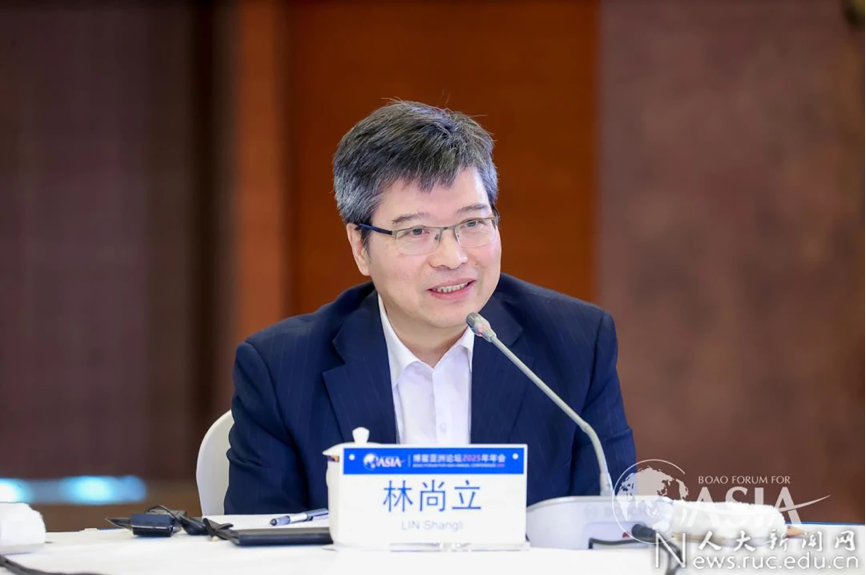
Lin Shangli participated in the sub-forum "Enhancing Dialogue Among Civilizations and Promoting Understanding and Trust," emphasizing the importance of fostering global cultural exchange and mutual understanding.
Notable participants in this forum included former French Prime Minister Jean-Pierre Raffarin, UN Under-Secretary-General for Policy Guy Ryder, and Vice Minister of the International Department of the CPC Central Committee Ma Hui, among others.
Lin stated that "in the face of global transformations, humanity must rediscover itself, establish a new order, and address common challenges through deep and meaningful dialogues across civilizations." He emphasized that President Xi Jinping's concepts of a "Community with a Shared Future for Mankind" and the "Global Development, Security, and Civilization Initiatives" provide strategic guidance for building a peaceful, inclusive, and prosperous world.
Lin highlighted the role of higher education in fostering cross-cultural dialogue. "Universities must integrate diverse civilizations, knowledge, and wisdom into students' minds. The past belonged to the era of knowledge, but the future belongs to the era of wisdom. The survival and development of universities hinge on their ability to embrace and understand different civilizations."
Danilo Türk: Rebuilding International Trust Through International Law and Multilateralism
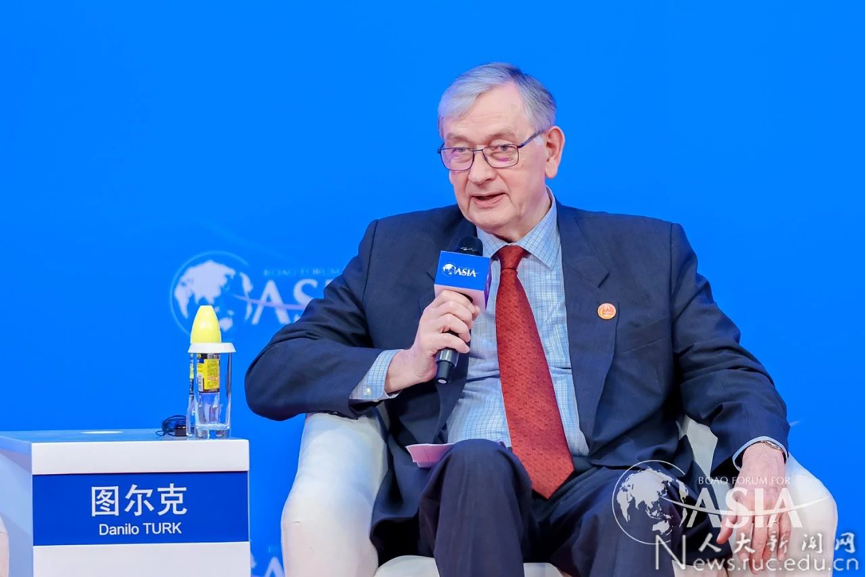
Danilo Türk participated in multiple high-level dialogues, including " Global Governance after the UN Summit of the Future" and "Building Trust in the Shifting Global Landscape." He stressed that rebuilding trust is critical and challenging in today's uncertain geopolitical landscape.
Türk declared, "The era of unipolar dominance is over. A single country can no longer dictate global affairs." He emphasized China's support for the United Nations as a key framework for fostering global trust and warned that international law is facing erosion risks. "Abandoning international law would have severe negative consequences; its importance must be universally recognized."
On artificial intelligence (AI), Türk urged the establishment of responsible AI governance mechanisms. He advocated for concrete legal and technological measures to maintain global stability amidst ongoing geopolitical shifts.
Wu Xiaoqiu: China’s Commitment to High-Level Economic Openness
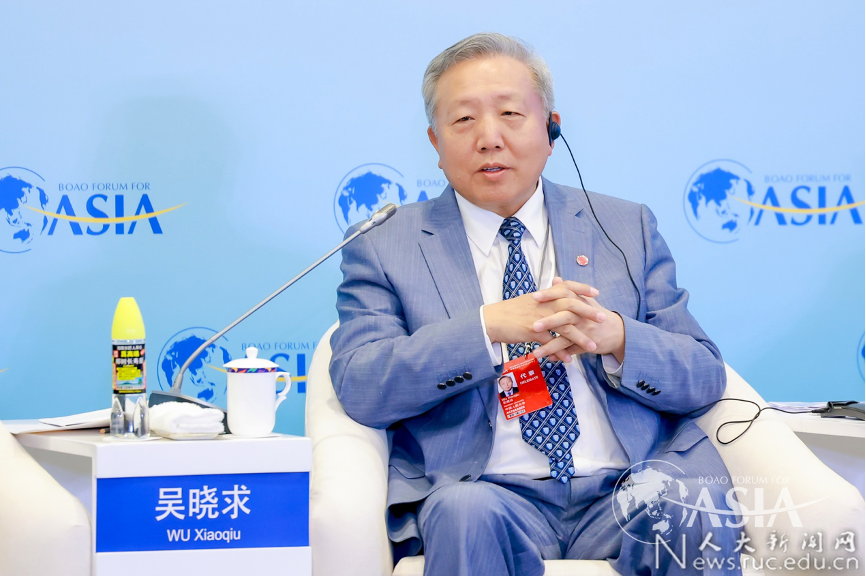
Wu Xiaoqiu hosted the high-level dialogue "China’s Reform and Economic Outlook" and spoke at the sub-forum "Building an Open World Economy: Challenges and Solutions." He stressed the importance of instilling confidence in China's economy among consumers, investors, entrepreneurs, and foreign stakeholders.
Wu highlighted the significance of the Hainan Free Trade Port in China's high-level opening-up strategy. "China’s doors will not close; they will only open wider," he affirmed.
Discussing economic reform, Wu called for coordinated policies to balance economic growth and debt risk management. He emphasized that a favorable business environment is essential for retaining domestic and foreign capital.
Wu also criticized protectionist policies, stating that "high tariffs are detrimental to global economic growth as they hinder the free flow of capital, goods, talent, and technology." He reaffirmed China's commitment to trade liberalization and economic globalization.
Du Peng: Addressing Population Aging as a Key Challenge for Asia’s Future
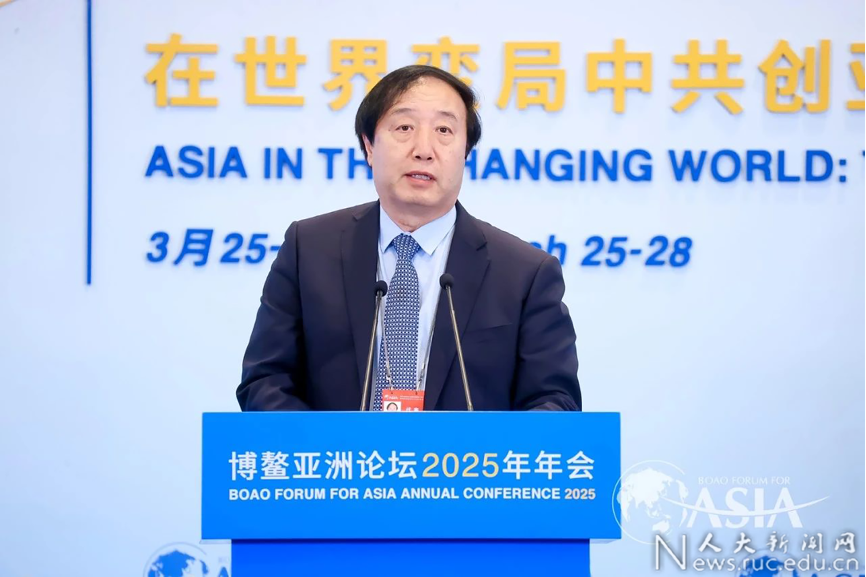
Du Peng moderated the roundtable discussion at the sub-forum "Reinforce Regional Exchanges and Cooperation, Joining Hands to Actively Address Population Aging." He noted that Asia encompasses countries at various stages of economic and demographic development and that addressing aging must be a collective effort.
He proposed three key strategies.
The first one is to enhance policy coordination. Asian countries should establish mechanisms for regular dialogue and cooperation to transform aging challenges into drivers of economic and social progress.
The second one is to foster multi-level cooperation. Governments, businesses, and academia must collaborate to improve governance and develop innovative solutions for aging societies.
The last one is to develop the silver economy. Expanding the market for elderly-oriented goods and services will create new economic opportunities. China's rapidly growing silver economy offers a valuable model for other Asian nations.
Wang Wen: Capturing Asia’s Economic Pulse Amid Global Uncertainty

Wang Wen hosted the "Chinese Business Leaders and Think Tanks Roundtable" and spoke at the "New Impetus for Regional Cooperation in Asia: from the Perspective of Pakistan and Beyond" sub-forum. He noted that this year’s Boao Forum theme reflects growing concerns over political risks, slow global economic recovery, and technological disruptions.
Wang emphasized that "Boao acts as a pressure converter, transforming anxiety into momentum for solutions." He highlighted the forum’s role in fostering Asian identity and economic integration.
He identified three promising trends: warming China-India relations, renewed China-Japan-South Korea cooperation and China’s economic recovery driving emerging markets.
Wang Yiwei: Strengthening Regional Trade Mechanisms to Unlock Asia’s Market Potential
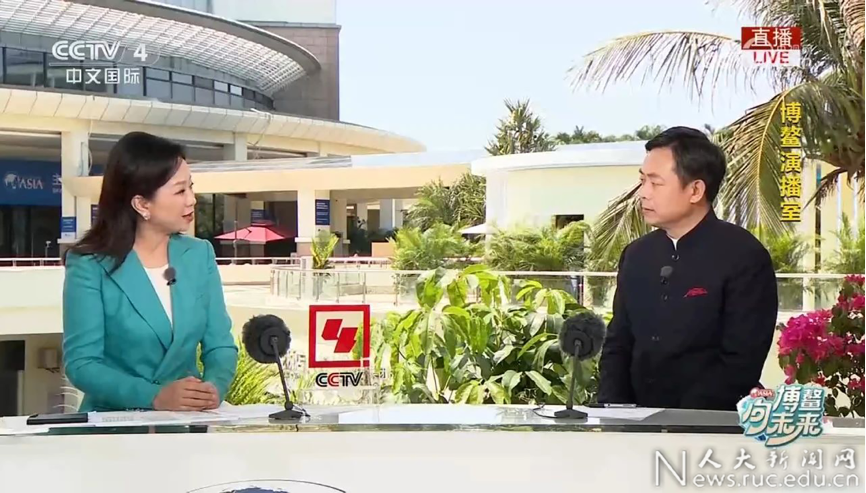
In an interview with CCTV-4's "Boao Towards the Future," Wang Yiwei highlighted the Boao Forum’s contribution to global economic integration through three key concepts: "Asian Power," "Asian Solutions," and "Asian Wisdom."
Firstly, Asian power. Asia accounts for nearly half of the global economy. China alone contributes over one-third of global economic growth, while India and other Asian nations continue to thrive.
Secondly, Asian solutions. The success of the Regional Comprehensive Economic Partnership (RCEP) demonstrates Asia’s leadership in trade cooperation. China is also pursuing membership in the Comprehensive and Progressive Agreement for Trans-Pacific Partnership (CPTPP), offering valuable lessons for global trade.
Lastly, Asian wisdom. Asia has effectively managed conflicts and maintained stability, avoiding large-scale wars post-Cold War. This approach serves as a model for peaceful coexistence and economic cooperation worldwide.



